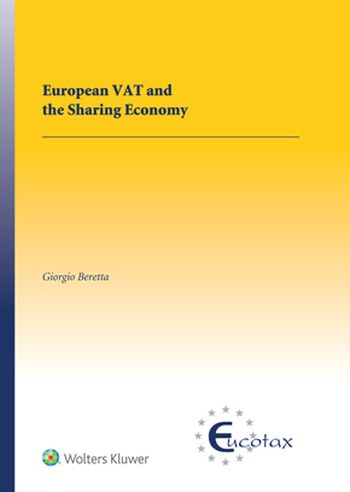
European VAT and the Sharing Economy aims to understand whether the current European Value Added Tax (EU VAT) system is sufficiently equipped to deal with the ongoing transformation of the supply chain as well as the increasing digitalization of the economy ushered in by the rise of multisided digital platforms. New digital platforms such as those of the sharing economy, have dramatically expanded the range of possibilities for exchanging anything required by business or personal needs, from accommodation to rides. In the virtual marketplaces shaped and ruled by these novel matchmakers, rather than by a single centralized entity, value is created through the granular interaction of many dispersed individuals. By allowing instantaneous and smooth interaction among millions of individuals, platforms have indeed pushed the digital frontier farther to include within it even services, such as accommodation and passenger transport, whose provision was once not possible from a remote location.
What’s in this book:
Legal disruption is also underway with foundational dichotomous categories, such as those between suppliers and customers, business and private spheres, employees and self-employed, no longer viable as organizational legal structures. This is the essential background of this first book of its kind to relate what is synthetically captured under the umbrella definition of ‘sharing economy’ to key features at the core of EU VAT and to look at the feasibility of a reformed EU VAT system capable of addressing the main challenges posed by these new models of production, distribution and consumption of goods and services.
Specifically, the study analyses five legal propositions underpinning the current EU VAT system as the following:
How this will help you:
As the first comprehensive analysis of the treatment of the sharing economy for VAT purposes, the book provides not only a theoretical framework for future studies in the tax field but also indispensable practical guidance for VAT specialists to understand and address the main challenges that the sharing economy poses to the current EU VAT system. Moreover, the various solutions and recommendations advanced in the book offer valuable insights into international and national policymakers dealing with similar issues under other VAT systems.